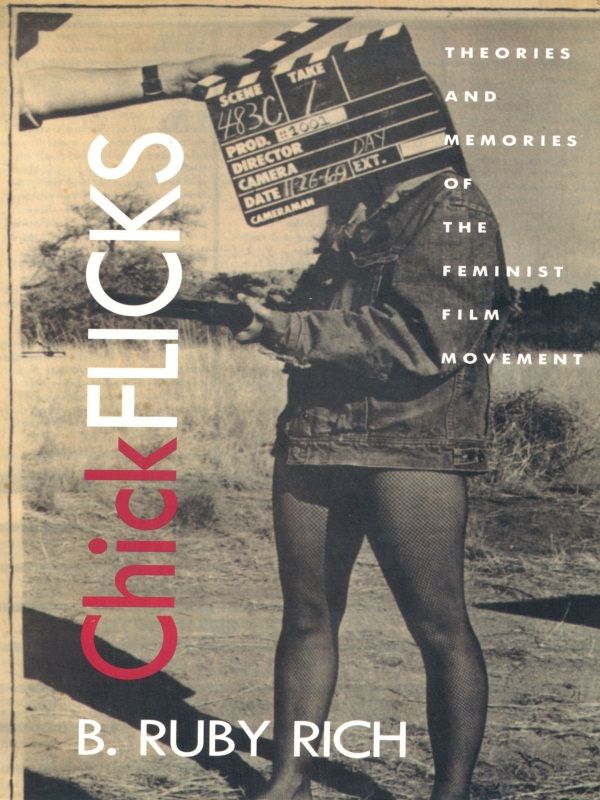Marga Bijvoet: Art as Inquiry: Toward New Collaborations Between Art, Science, and Technology (1997) [EN, DE]
Filed under book | Tags: · 1960s, 1970s, art, art and science, art history, art theory, artistic research, ecology, environment, land art, media art, science, site-specific art, systems art, technology, video, video art

“Art as Inquiry is a pioneering yet under-recognized monographic study of art in the 1960s and early 1970s; Despite the subtitle, Bijvoet’s artistic concerns are not exclusively focused on science and technology, but rather with the “‘moving out’ into nature or the environment and the “moving ‘into technology’”: twin tendencies that, in her mind, stand out amidst the pluralism of 1960s art. She claims that these movements not only broke “the boundaries of art and … the commercial art world structure” but more importantly that environmental artists and tech artists both sought out and engaged in collaborations in which the artist “entered into a new relationship with the environment, space, public arena, onto the terrain of other sciences.”” (Edward A. Shanken)
Publisher Peter Lang, 1997
ISBN 0820433829, 9780820433820
x+283 pages
Review: Alan Dorin (2006).
WorldCat (EN)
Art as Inquiry (English, 1997, HTML, at Internet Archive)
Kunst-Forschung (German, n.d., HTML, at Internet Archive)
B. Ruby Rich: Chick Flicks: Theories and Memories of the Feminist Film Movement (1998)
Filed under book | Tags: · 1970s, 1980s, cinema, feminism, film, film criticism, film history, film theory, queer, women

“If there was a moment during the sixties, seventies, or eighties that changed the history of the women’s film movement, B. Ruby Rich was there. Part journalistic chronicle, part memoir, Chick Flicks—with its definitive, the-way-it-was collection of essays—captures the birth and growth of feminist film.
For over three decades Rich has been one of the most important voices in feminist film criticism. Her presence at film festivals, her film reviews in the Village Voice, Elle, Out, and the Advocate, and her commentaries on the public radio program “The World” have secured her a place as a central figure in the history of what she deems “cinefeminism.” In the hope that a new generation of feminist film culture might be revitalized by reclaiming its own history, Rich introduces each essay with an autobiographical prologue that describes the intellectual, political, and personal moments from which the work arose. Travel, softball, sex, and voodoo all somehow fit into a book that includes classic Rich articles covering such topics as the antiporn movement, the films of Yvonne Rainer, a Julie Christie visit to Washington, and the historically evocative film Mädchen in Uniform.”
Publisher Duke University Press, Durham and London, 1998
ISBN 0822321211, 9780822321217
448 pages
Review (Linda Mizejewski, Women’s Review of Books, c1998)
Review (Susan Lord, Film Studies, c1999)
Review (Felicity Collins, 1999)
See also Women and Film Project initiated in 2013 by Clarissa Jacob and Kate Wieteska.
Comment (0)Matthew Wisnioski: Engineers for Change: Competing Visions of Technology in 1960s America (2012)
Filed under book | Tags: · 1960s, 1970s, activism, computing, education, engineering, history of computing, history of technology, labour, luddism, military, science, space, technology

“In the late 1960s an eclectic group of engineers joined the antiwar and civil rights activists of the time in agitating for change. The engineers were fighting to remake their profession, challenging their fellow engineers to embrace a more humane vision of technology. In Engineers for Change, Matthew Wisnioski offers an account of this conflict within engineering, linking it to deep-seated assumptions about technology and American life.
The postwar period in America saw a near-utopian belief in technology’s beneficence. Beginning in the mid-1960s, however, society—influenced by the antitechnology writings of such thinkers as Jacques Ellul and Lewis Mumford—began to view technology in a more negative light. Engineers themselves were seen as conformist organization men propping up the military-industrial complex. A dissident minority of engineers offered critiques of their profession that appropriated concepts from technology’s critics. These dissidents were criticized in turn by conservatives who regarded them as countercultural Luddites. And yet, as Wisnioski shows, the radical minority spurred the professional elite to promote a new understanding of technology as a rapidly accelerating force that our institutions are ill-equipped to handle. The negative consequences of technology spring from its very nature—and not from engineering’s failures. “Sociotechnologists” were recruited to help society adjust to its technology. Wisnioski argues that in responding to the challenges posed by critics within their profession, engineers in the 1960s helped shape our dominant contemporary understanding of technological change as the driver of history.”
Publisher MIT Press, 2012
ISBN 0262018268, 9780262018265
296 pages
via a2
Interview with the author (Carla Nappi, New Books in Science, Technology, and Society, audio, 1h)
Review (Caroll Pursell, The American Historical Review, 2014)
Review (Kevin T. Baker, The Sixties, 2013)
Review (Stephen H. Unger, 2013)

